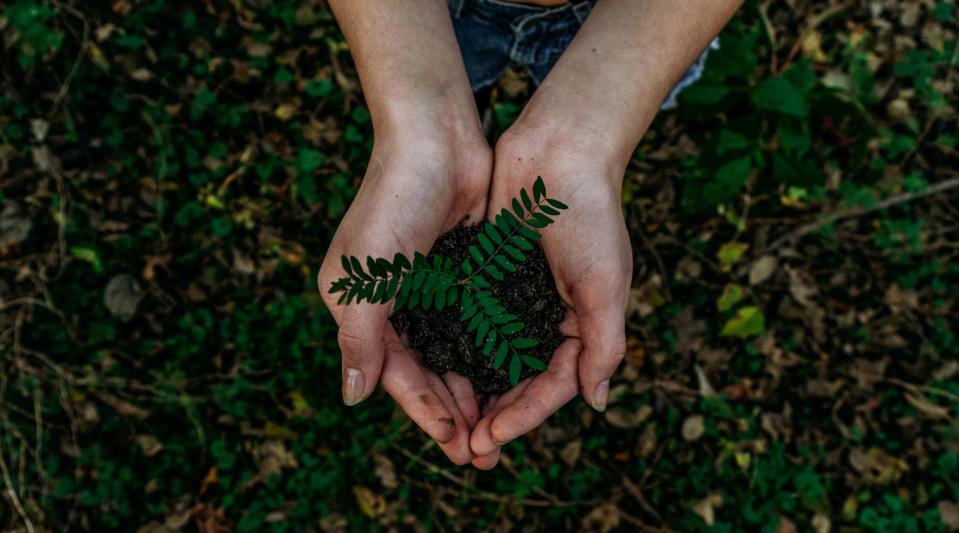DBS, OCBC, Singtel and UOB named Singapore's most valuable brands in the Sustainability Perceptions Index 2023

All four also scored the highest in the governance pillar among the ESG pillars.
DBS Group Holdings, Oversea-Chinese Banking Corporation (OCBC), Singapore Telecommunications (Singtel) and United Overseas Bank (UOB) are Singapore’s most valuable brands in terms of sustainability perceptions.
This is according to the Sustainability Perceptions Index 2023, an inaugural report that was launched by Brand Finance during the World Economic Forum (WEF) in Davos, and in association with the International Advertising Association (IAA).
The report revealed the financial value of sustainability perceptions of the world’s biggest brands and ranked the world’s 500 most valuable brands in terms of sustainability perceptions value.
According to the report, all four local brands were each perceived as being “professionally, ethically and responsibly managed”. All four also scored the highest in the governance pillar among the environmental, social and governance (ESG) pillars.
“Businesses in Singapore are driving change as the country continues to future-proof itself in line with developments in business, finance and commerce activities. Sustainability will remain key to this endeavour. DBS, OCBC, Singtel and UOB have been central to the Singapore success story in developing infrastructure and will continue to do so via their sustainability approaches. Our study shows that their commitments to sustainability are not only well recognised but also value generating for their businesses,” says Alex Haigh, managing director, Asia Pacific, of Brand Finance.
“It is important to note that what constitutes 'sustainability' changes with time and brands would do well to keep track of developments in order to respond in a relevant and effective way,” he adds.
Globally, brands like Amazon, Tesla, Apple and Google were named the world’s most valuable brands. Amazon came in tops with a sustainability perceptions value of US$19.9 billion ($26.6 billion). Tesla, Apple and Google stood second, third and fourth with sustainability perceptions values of US$17.8 billion, US$14.7 billion and US$14.6 billion respectively.
Tesla, especially, was found to be financially reliant on sustainability perceptions with 26.9% of its brand value associated with a reputation for sustainability.
“For the first time, companies can now see the financial value that is tied to a reputation for acting sustainably. Whether they are seen as sustainability champions or not, the world’s biggest brands have hundreds of millions of dollars’ worth of value contingent on how sustainable they are perceived to be,” says Robert Haigh, strategy and sustainability director of Brand Finance.
“We see this as an incredibly potent tool to incentivise action in line with the United Nations Sustainability Development Goals and wider aims of the United Nations Global Compact. By highlighting the financial value that is contingent on sustainability perceptions, we hope to harness businesses’ profit motive, moving them past the point where they see sustainability as a ‘hygiene factor’, to a point of rapid, concerted action,” adds Dagmara Szule, managing director of IAA Global.
The luxury automobile sector also accounted for a number of brands that performed extremely well in terms of sustainability perceptions, such as Porsche and Mercedes-Benz. Brand Finance’s research revealed that sustainability perceptions were crucial in consumer choice, reflected through an average score of 22.9%.
“It might seem counterintuitive that brands associated with high fuel consumption are so reliant on a reputation for sustainability. However, our research found that at the premium end of all sectors, sustainability plays a powerful role. In luxury automobiles, where the purchase is discretionary and the brand is publicly expressed, the role of sustainability is further enhanced,” notes Robert Haigh.
Within the report, Brand Finance also evaluated the sustainability perceptions of each brand by allocating a Sustainability Perceptions Score.
The following brands are perceived by consumers to be the most committed to sustainability: Tesla, IKEA and Patagonia performed well across a wide range of markets. Lush and The Body Shop scored highly in the UK while skincare brand Yves Rocher and tyre brand Michelin scored well in France. Brazilian cosmetics brand Natura scored highly in its home market.
“Failing to communicate clearly about ESG topics puts value at risk. Consumers are relatively trusting of sustainability claims and clearly value brand’s commitment to sustainability. Undercommunicating or ‘green-hushing’ is therefore a missed opportunity. On the other hand, sustainability communication must be authentic and supported by action, because overclaiming or ‘greenwashing’ exposes the business to hundreds of millions of dollars of reputational damage,” says Robert Haigh.
See Also:
Click here to stay updated with the Latest Business & Investment News in Singapore
UOB ‘less enthusiastic’ on upcoming two-year SGS outperformance vs US Treasuries or Sora OIS
MAS and Reserve Bank of India launch real-time payment linkage between PayNow and India's UPI
Analysts retain 'buy' calls on Singtel despite 'challenging quarter'
Get in-depth insights from our expert contributors, and dive into financial and economic trends

 Yahoo Finance
Yahoo Finance 